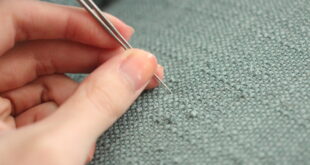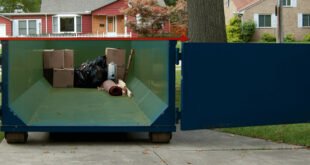Metal garages and steel buildings are strong, durable structures typically capable of withstanding harsh conditions.
That said, the freezing temperatures, icy precipitation, and whipping winds commonly occurring during wintertime might result in problems in even the stoutest constructions. Therefore, winterizing such structures bears significant importance.
Overview
Industry professionals maintain that winterizing metal buildings is not a terribly complicated process. However, failing to take such precautions could result in problematic issues like aesthetic deterioration, increased energy costs, and structural damage necessitating expensive repairs.
Tips for Winterizing Metal Garages
Fortunately, performing specific actions might prevent the aforementioned problems. Such tips include:
Ensuring Enclosure Receives Adequate Insulation
Metal’s thickness and strength make said material a relatively solid insulator. However, detached garages may be situated away from a home or building and might not be equipped with its own heat source. Ergo, applying proper insulation is vital to keeping said structure as warm and comfortable as possible.
Insulation should be positioned on both the enclosure’s interior and exterior. Interior safeguards could come in the form of:
Fiberglass
Metal buildings are commonly insulated using fiberglass sheets. Though effective in protecting internal spaces from cold, fiberglass must be properly maintained. Excessive moisture could precipitate the development of potentially harmful contaminants like mold.

Spray Foam
Many industry professionals favor using spray foam. This product is moisture-resistant and retains heat by sealing heat in and keeping cold out. This substance also permeates into hard to reach locations and covers up even the tiniest crevices capable of allowing cold air to penetrate inside.
To adequately insulate the structure’s exterior, home improvement and contracting professionals suggest replacing the weather stripping. Deteriorated stripping panels could allow untoward elements such as frigid air and moisture to enter the garage in question.
Remove or Trim Surrounding Foliage
Trim or remove trees or shrubbery adjacent to the garage. Said lifeforms can whip against the exterior during wind or snow events causing damage. Moreover, heavy accumulation of frozen precipitation can result in tree collapses, which could result in extensive destructions and significant repairs.
Clear Debris from Roof
The garage’s roof should be clear of any debris. The most common offenders are leaves, tree branches, dirt, dust, and allergens. These items can collect water. Too much water could yield discernible roof damages necessitating prompt repair or even replacement.
Remove Chemicals
The garage is often home to any number of chemical agents employed for various tasks. When these substances freeze, they often expand. Said expansion can result in container breakages and spills.
The remediation process might not only be challenging and pricey but said materials could be hazardous. Therefore, relocating said products indoors greatly reduces the risk of such occurrences.
Gutter Maintenance
Home or building owners should never sleep on the gutters of detached garages. This action is considered amongst the most crucial winter-protection effort to perform on metal and steel buildings.
Gutters channel water off the roof and safely to the ground. However, gutters clogged with environmental debris obstruct water’s clear and quick passage. Such an occurrence could result in significant water accumulation on the roof and the potential associated hazards of said action.

Address Small but Necessary Openings
Garages are often equipped with electrical outlets. Though necessary features, the tiny holes used to house plugs offer an avenue for cold air to penetrate inside. Home improvement professionals suggest covering these units with their accompanying covers or sealing them using fire-blocking caulk.
Install A Heater
If the previous efforts do not yield intended results or provide the comfort the property owner yearns, said individual might opt to have a heating unit or space heater installed.
Though these items often provide a significant degree of warmth, they must be operated with caution. Any flammable materials, especially chemicals should be removed from the enclosure. Moreover, heating units should be powered down when vacated for extended durations.



